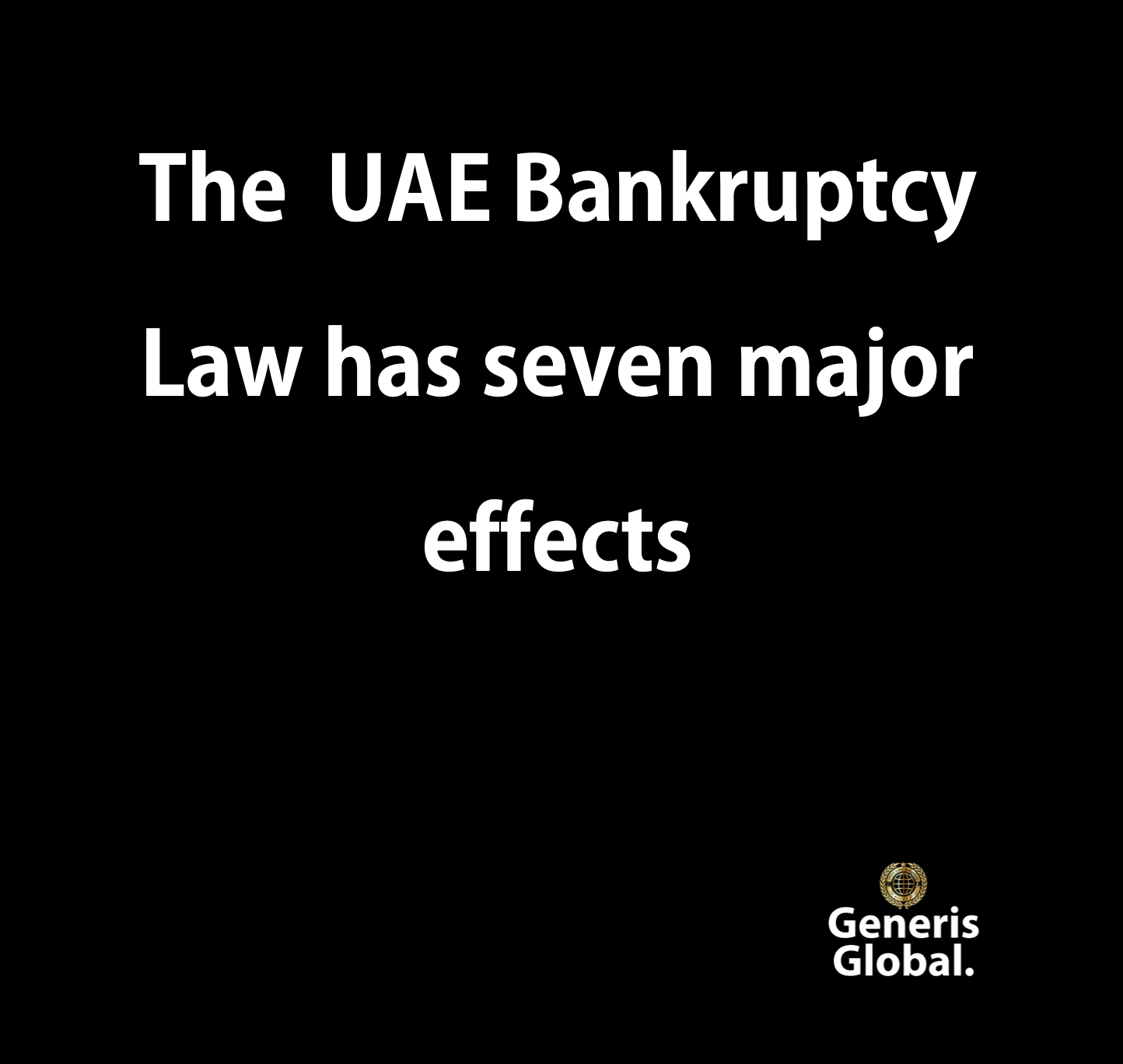In the year 2008, the economy of the United Arab Emirates was hit by a severe financial crisis. Since then, the UAE bankruptcy legislation, also known as the UAE Insolvency Law, has been a source of intense debate in both the legal and financial communities, as well as among international investors.

Insolvencies and bankruptcy of businesses in the United Arab Emirates have traditionally been a time-consuming process, with a recovery rate that is very low. Furthermore, in order to maintain the UAE’s reputation as a commercial centre and an investor’s paradise, the long-awaited bankruptcy laws were modified in 2017 and the new UAE insolvency legislation was placed into effect.
Table of Contents
Why was it necessary to modify the previous UAE Bankruptcy Law?
Despite the fact that Federal Code No. 18 of 1993, often known as the old UAE business law, dealt with bankruptcy, it was not an all-inclusive system that served efficiently to businesses and investors. As outlined in the previous United Arab Emirates Bankruptcy Law, the bankruptcy rules primarily establish the framework across three distinct laws – those being the Commercial Companies Law, the Commercial Transactions Law, and the Civil Code – in order to achieve consistency. Regardless, corporations risked severe repercussions in the event of bankruptcy, and company owners faced criminal prosecution and heavy penalties — reform was thus required.
So, what exactly is the new Bankruptcy Law in the United Arab Emirates?
The Bankruptcy Law, also known as Federal Law No. 9 of 2016 or the Bankruptcy Decree, is a decree issued by His Highness Sheikh Khalifa bin Zayed Al Nahyan and distributed worldwide. This new business legislation is based on current legal systems and economic concepts, and it takes into account worldwide changes as well as shifts in the economic and commercial environments. Privatized and publicly traded businesses alike are subject to the provisions of the bankruptcy legislation.
The new UAE Bankruptcy Law has brought about several significant changes, including the following:
The existing insolvency system under the UAE Commercial Code has been replaced by the new UAE Bankruptcy Law.
Commercial traders are not exempt from the new bankruptcy laws, which have a broader scope and are not restricted to them.
A Financial Restructuring Committee is being established by the federal government to guide companies in bankrupt circumstances.
The new UAE Bankruptcy Law establishes a balance sheet and seeks to discover innovative alternatives to traditional criteria of bankruptcy.
There has been an omission of a criminal offence under the bankruptcy code, as well as the issuance of rejected checks in certain cases.
The new Bankruptcy Law has established a minimum threshold of AED 100,000 for creditors who are involved in insolvency procedures.
THE FOLLOWING ARE THE SEVEN IMPACTS OF THE NEW UNITED ARAB BANKRUPTCY LEGISLATION:
The new UAE Bankruptcy Law has contributed to the improvement of the economy, the development of business confidence, and the provision of assurance to investors.
Companies that are experiencing financial problems and economic difficulties will be strengthened as a result of the Law.
In addition, the UAE Insolvency Law has made it easier to liquidate the assets of debtors in the case of insolvent bankruptcy.
As a result of the new bankruptcy regulations established by Federal Law No. 9 of 2016, it is now possible to get new loans under the terms and circumstances stipulated by the law.
The legislation has enhanced its worth in the eyes of the business community across the globe, and it has also piqued the interest of foreign investors.
Previously, legislation dealt with businesses who owed money and forced them to leave the nation;
however, this is no longer the case, and businessmen are seeking other means to pay their obligations.
It is now possible to resolve bankruptcy outside of court with the assistance of a committee called the Committee of Financial Restructuring — which makes things much simpler.
When dealing with the new UAE Bankruptcy Law, pay close attention:
However, although the effect has been beneficial, it is also essential to exercise caution while dealing with the New UAE Insolvency Law.
Violators who intentionally abuse the legislation and declare themselves bankrupt will face severe penalties, according to the statute.
If found guilty of misapplication of the law, offenders would face a jail term of up to five years in prison and a fine of Dh1 million, according to the new legislation.
In spite of the fact that the New UAE Insolvency Law establishes a strong legal insolvency framework that claims the investor’s security, an increasing number of businesses are seeking investments. Make certain that you are not left behind!
Copy and paste this <iframe> into your site. It renders a lightweight card.
Preview loads from ?cta_embed=1 on this post.